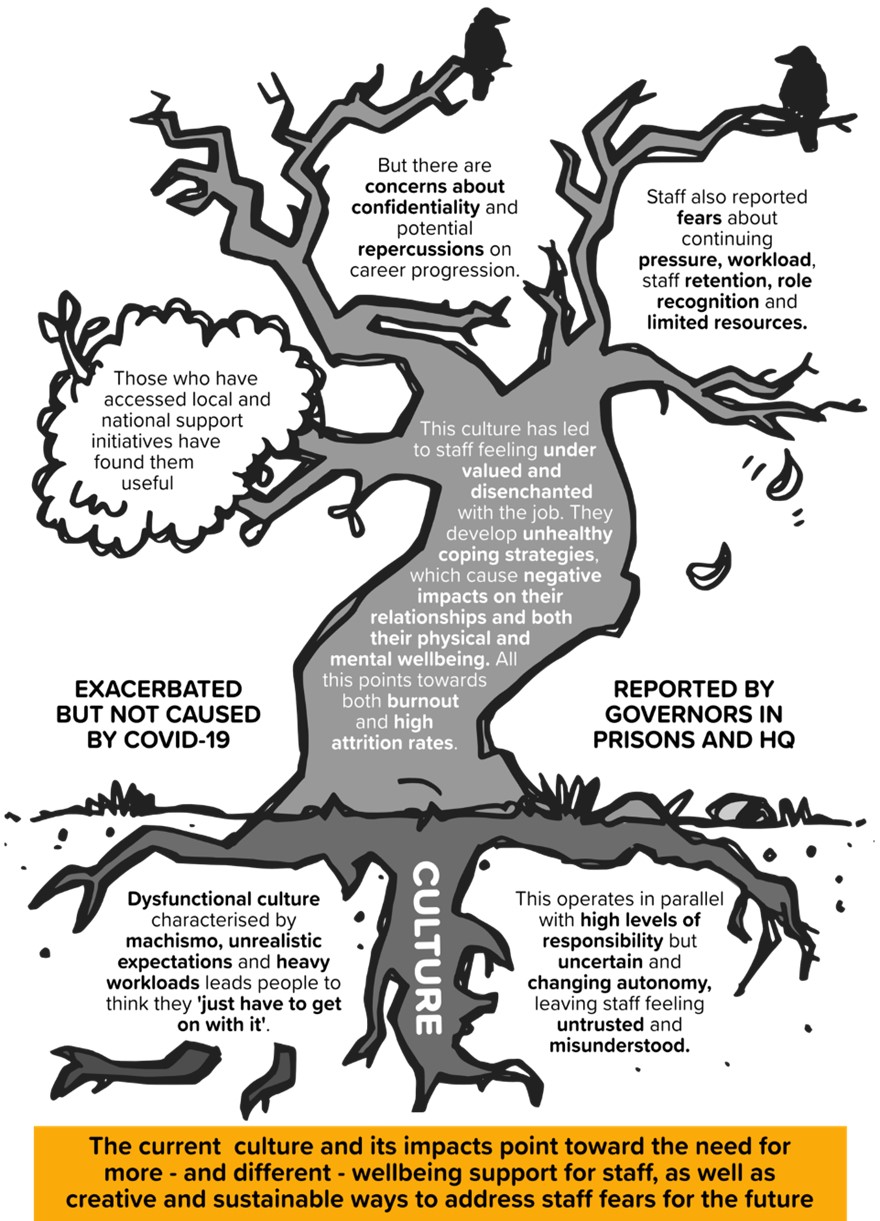A team of researchers at the University of Lincoln conducted research funded by the QR SPF fund to help the Prison Governors’ Association (PGA) build a better understanding of the health and wellbeing of their members
Using qualitative interviews, the multidisciplinary research team – bringing together expertise in psychology, health, law, and criminology and led by Dr Lauren Smith – spoke to 63 PGA members to explore how participants described their health and wellbeing at work, what mechanisms of support were available, and how they felt about their current role.
A number of themes and subthemes were identified during data analysis, including:
- The cycle of macho, masculine competition culture
- Responsibility but lack of autonomy
- Problems with accessing suitable support
- The culmination of problems leading to a path to disenchantment
- Concerns about the future in the prison service

Just Get On With It
‘Macho culture’ for this research refers to an environment of masculine competition culture, where toughness and stamina are emphasised, and weakness should not be shown. From our interviews, we heard that participants perceived opening up as a sign of weakness or failure and feared the repercussions if they did share what they were feeling. There is a culture of presenteeism, with staff
carrying unmanageable workloads. Instead of talking about the challenges they face, participants referred to the need to adopt an ‘impenetrable’ persona and cope on their own, even when serious incidents occurred.
A key feature of the research was to explore when and how prison operational managers and governor grade staff accessed support, and through the interviews we asked how participants felt about the local and national wellbeing initiatives on offer. Where services like PAM Assist, the Employee Assistance Programme, and Trauma Risk Management had been accessed, interviewees were generally positive about their experiences. However, most felt that all these services were more geared towards their staff than themselves, and some reported significant concerns about confidentiality and the potential repercussions of using such a service, particularly in relation to career progression. This culminated in contributing to people not feeling valued.
In face of the challenges of their workplace, prison governors discussed having to ‘just get on with’ their work despite feeling burnt-out and undervalued.
Re-enchantment
Problems with macho culture, lack of autonomy and lack of support made interviewees feel disenchanted and disengaged. Staff told us about feeling exhausted, in some cases bullied, traumatised, and, in some cases, unable to go on. Several told us about using unhealthy coping strategies to deal with the relentless and intense pressure they face every day. Many also reported being unable to maintain a healthy work-life balance, damaged relationships, and physical and mental health exhaustion. People talked about being too tired to go on, feeling constantly worried, and at risk of burnout.
Enchanted workplaces are places of wonder, that encourage autonomy, meaning and purpose and allow individuals to flourish (Martin et al. 2021), and to achieve this for prison governors the problems shared during this research must be addressed and overcome. Support pathways need strengthening, with the potential for policy to increase incorporation of support into roles as usual practice.
More Details:
The short report can be viewed here
The research summary video can be viewed here
Dr Gary Saunders
